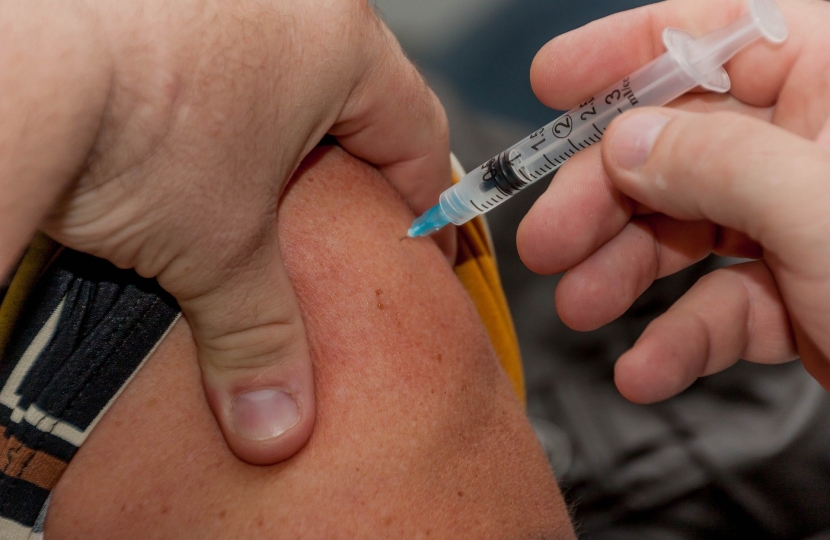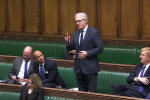
A number of constituents have contacted me to share their views on the potential introduction of ‘vaccine passports’ – on both sides of the debate – and I have set out my views here.
The question of vaccine passports is a difficult and emotive one. While the majority of constituents I have heard from throughout the pandemic have accepted that sacrifices have been needed to reduce the infection rate, I am aware that many find the potential effect of a widespread need for vaccine passports or certification a chilling prospect.
A range of options are currently being considered by the Government to encourage people to receive the Covid vaccine. One of these is the idea that Covid-status certification (showing you have been vaccinated, recently had a negative coronavirus test or have a level of immunity if you have recently tested positive for the virus) could play a role in safely returning to ‘normal life’ and reopening the economy.
It is worth noting that even without vaccine passports being introduced in the UK, other countries are already developing their own certification systems which would be required for UK citizens undertaking international travel.
Domestically, many have raised concerns that requiring a vaccine passport to enter businesses or hospitality venues would effectively make having the vaccine compulsory. While these measures are still under review, I understand any proposed Covid status certification could also be obtained from a negative coronavirus test, and as such a vaccine would not be an absolute necessity (although it is of course encouraged that we should all receive this as soon as we are able). The Government also recognises that it is important that there are appropriate exemptions for people for whom vaccination is not advised, and repeat testing is difficult.
Overall, my view is that it is right that measures are in place to identify those who might be more likely to spread the virus if they are in public - and voluntarily attended - settings, particularly those where social distancing is more difficult.
I am also not sure we should ban private companies from insisting that their employees (like plumbers) or customers (like plane travellers) have evidence of a test or vaccine. The Government believes that introducing a ban on this would in most cases be an unjustified intrusion on how businesses choose to make their workers or premises safe. That said, the Government believes that there are some settings (such as essential public services, public transport and essential shops) where Covid-status certification should never be required, in order to ensure access for all.
The issue of virus passports raises complex ethical and discriminatory issues that need to be worked through. This is something I know the Government and the Prime Minister are conscious of and I welcome the fact that the Government is considering these issues fully as part of the review into whether Covid-status certification is appropriate. I understand that the review has so far gathered evidence from clinical and ethical experts, as well as businesses and their representative organisations; in addition, the public call for evidence has generated more than 50,000 responses representing a wide range of opinions.
As the Prime Minister has said, it may be that there is a role for certification in the future, but for now the emphasis is rightly on our vaccination and testing programmes. I will keep a close eye on the debate as more information becomes available.





